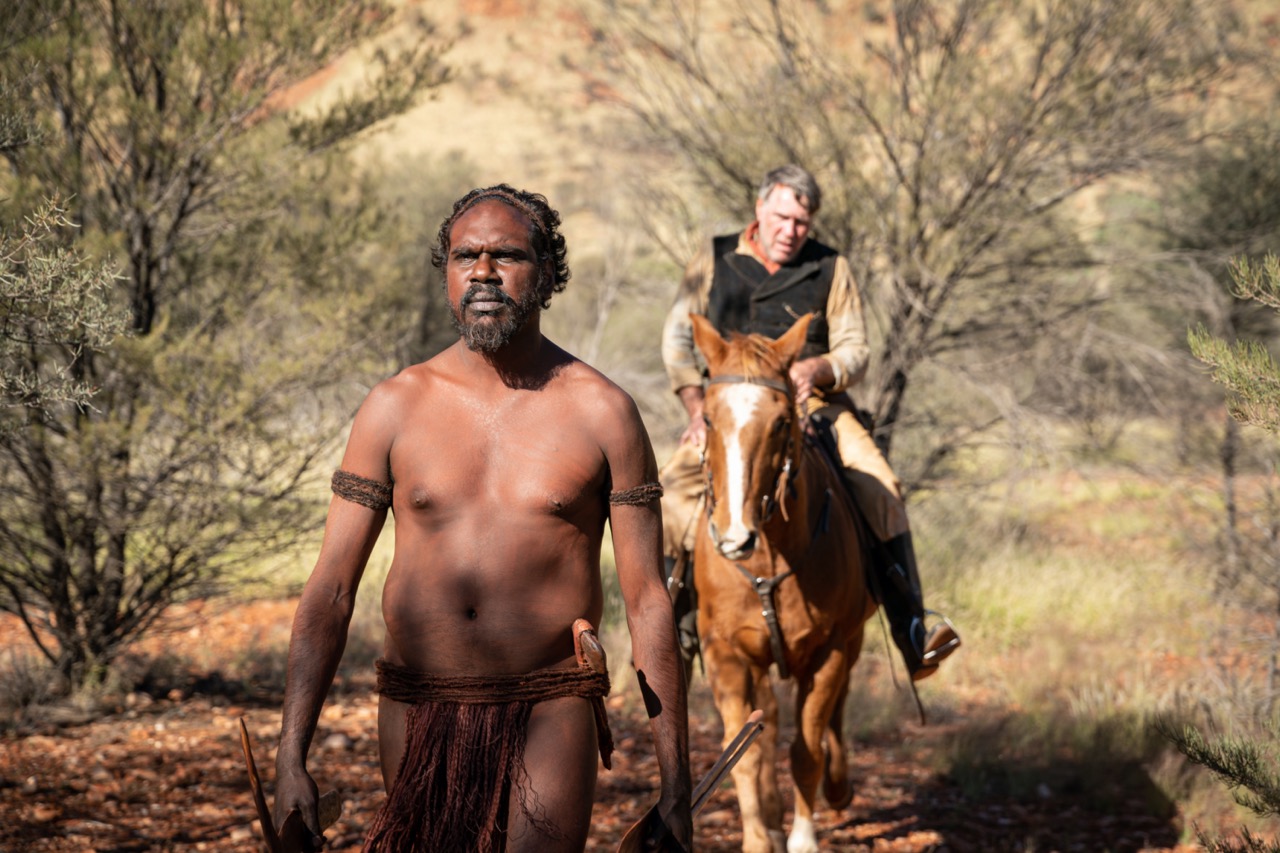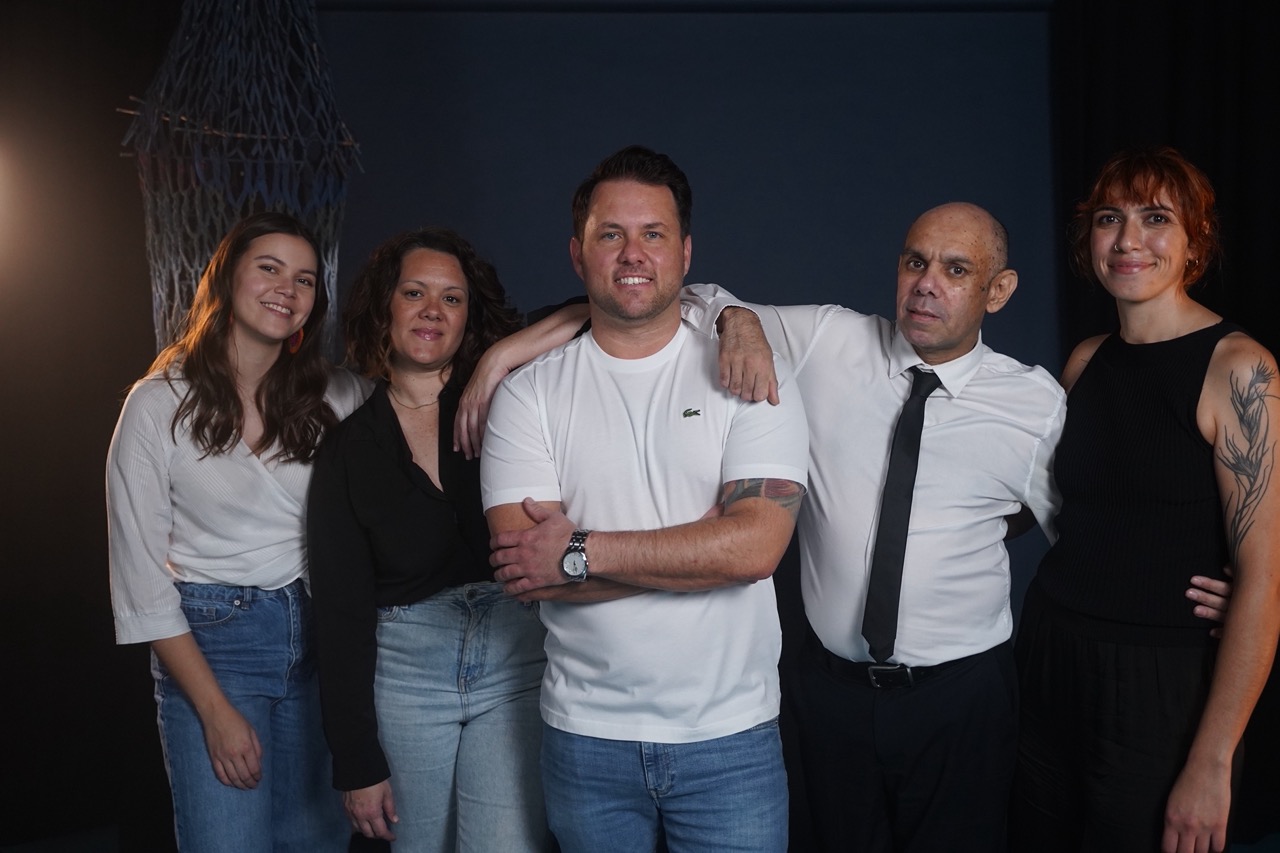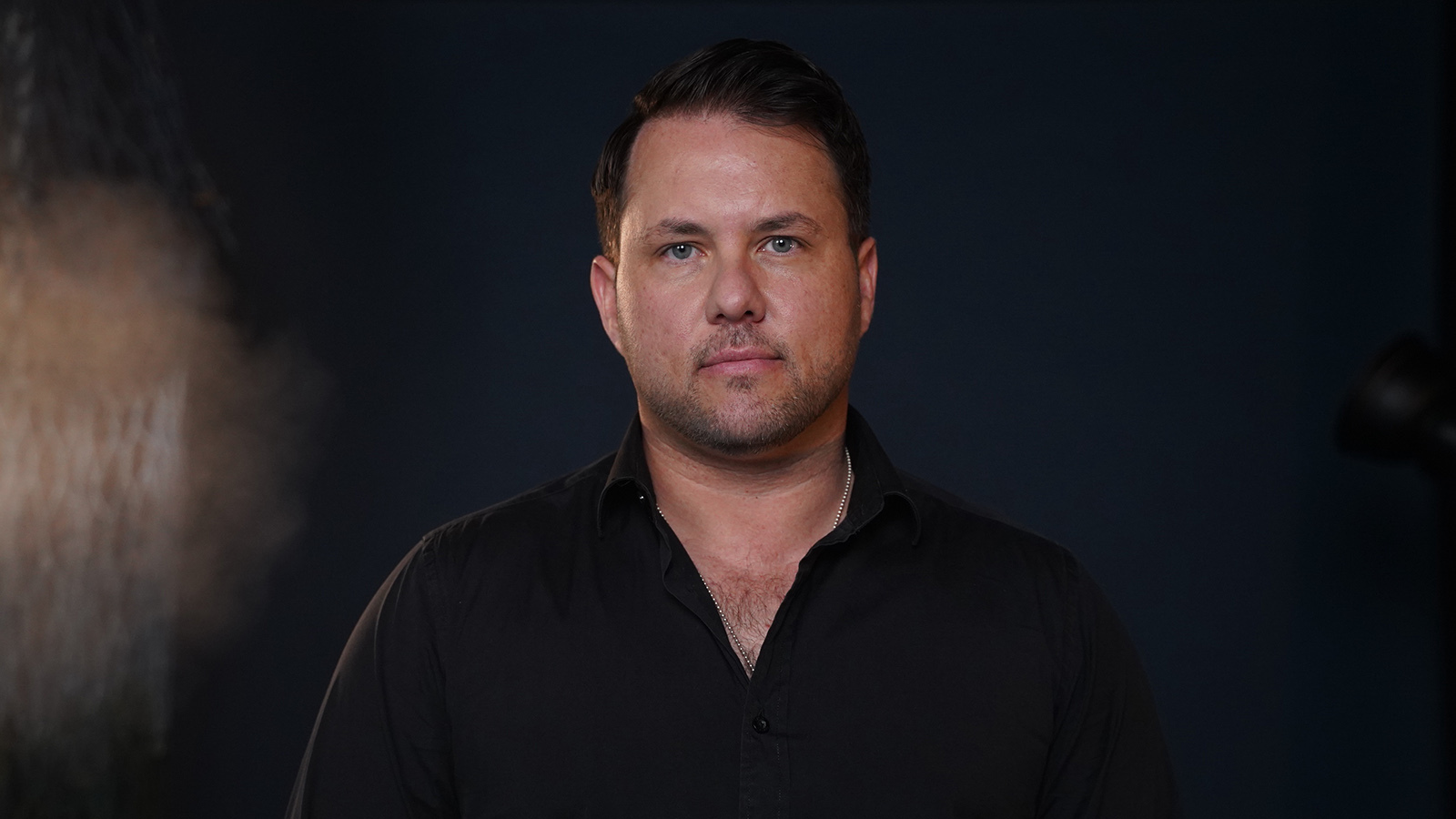Mitch Stanley, proud Wiradjuri producer and prominent figure in the Australian screen industry, began his career as a line producer for the Aboriginal and Torres Strait Islander dance-based youth, health and fitness series Move it Mob Style for ABC TV.
He later founded the independent production company No Coincidence Media (NCM) to create raw and cutting edge factual and scripted projects from First Nations perspectives. Productions have included significant works such as Colour Theory with prominent artist and activist Richard Bell, exploring the vibrant world of First Nations art, and the international award-winning feature film Servant or Slave, which Mitch co-wrote with Steven McGregor, on the confronting history of the Stolen Generations.
Residing in Brisbane (Meanjin), Queensland, Mitch has consistently pushed creative boundaries. NCM, in partnership with World Wide Mind, produced the visually stunning and critically acclaimed SBS documentary series The Beach, now available on A24 in the United States. With the support of Screen Queensland, NCM produced the first official Indigenous Australian and New Zealand co-production with Marama Productions, We Are Still Here. The award-winning ground-breaking anthology feature film is now available to watch on SBS and Netflix Australia.

NCM is now set to reach more international audiences with its unique First Nations-led genre film, The Moogai. Written and directed by Jon Bell, The Moogai made its World Premiere at the 2024 Sundance Film Festival and won the Audience Award for Best Australian Feature at the Sydney Film Festival, as well as the Film Prize at CinefestOZ. The highly anticipated psychological thriller releases in Australian cinemas on 31 October through Maslow Entertainment.
Mitch continues to evolve NCM as a leading independent First Nations media company. As one of the recent recipients of Screen Queensland’s new $3 million Business Enterprise Fund, the team will expand their operations to showcase the strengths of First Nations writers, directors, and actors and share rich stories to a global audience.
Screen Queensland caught up with Mitch to discuss his journey in the industry.
What drew you to screen storytelling, and how did you get to where you are now?
I began my career in my late teens studying acting but shifted into a different direction entirely. I worked in banking, learning business and finance skills, which later helped me land a role at NITV, heading up Acquisitions. From there, I pursued formal training with Metro Screen in Sydney and took short courses with AFTRS. My career path evolved further after an internship with Screen NSW, before moving on to work with Vibe Australia on Move It Mob Style. From that experience, I transitioned into producing my own projects.
How is screen storytelling important for Aboriginal and Torres Strait Islander communities?
Screen storytelling is crucial for sharing our stories with each other and the broader world. Film, television, web series, and news and current affairs authored by our mob help us connect not only within our own communities but also across different regions and internationally. Despite the historical traumas and losses endured by our people, one thing that remains with us is our ability to tell stories. It’s crucial that we keep sharing them as a way of preserving our culture and fostering connections.
What types of First Nations-led stories do you want to see on screen in the coming years?
There’s still a lot of progress to be made, but we’re starting to see more Aboriginal and Torres Strait Islander characters as the leads in their own stories, rather than being relegated to secondary or ‘othered’ roles. This shift is happening because our stories are increasingly being authored by us. Looking ahead, I hope to see even more narratives where First Nations people take control of their own representation, whether it’s scripted or factual content. It’s about normalising our stories, not sidelining them. It’s important to note that we as the authors of our stories are deciding what stories are being told, we have that power in storytelling now.
What is your advice for emerging Aboriginal and Torres Strait Islander filmmakers who want to enter the screen industry?
Be ready to work hard and stay resilient—this industry has its challenges, and not all of them will be kind. Success takes time, dedication, and a willingness to grow from the ground up. It’s essential to build a supportive network around you. You’ll learn that no one has all the answers, so don’t be too hard on yourself if you feel uncertain. The key is to keep learning, stay humble, and don’t give up. Remember that everyone is on a unique path of discovery.
What’s next for you and No Coincidence Media?
No Coincidence Media is expanding—we’ve recently brought on Rockhampton-based Indigenous documentary producer, Yale MacGillivray, to join the company as a producer and manage the documentary/factual slate, and Brisbane-based Indigenous concept creator, Steven Oliver to create intellectual property to be developed internally. As we grow, we’re focusing on developing a mix of factual and scripted projects, with a particular emphasis on working with First Nations creatives. We have some exciting projects lined up in television and features, and we’re also looking to explore shorter form content. The company’s mission remains the same: to elevate Indigenous voices and collaborate with up-and-coming talent.

